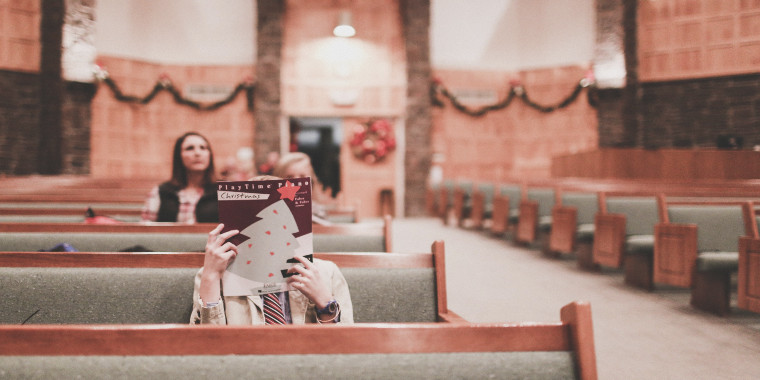
25 Tips for a Calmer Christmas
Do you find that the important things about Christmas get dwarfed by present-buying? Or find yourself meeting obligations that take the joy out of Christmas?
Here are 25 ideas that aim to help you have a calmer, more meaningful, and less stressful Christmas.
The ideas in this article are grouped into several themes.
Here they are:
- Planning Christmas: uncover the hidden meaning
- Mindful Christmas cards
- Gift giving at Christmas: presents or presence?
- Lighten the load at Christmas: for a greater sense of calm
- During Christmas time: share the joy
lanning Christmas: uncover the hidden meaning
1. You’re in charge
Simplify Simplify Simplify. Christmas isn’t in charge of you. You’re in charge of Christmas. You don’t have to do what the adverts tell you, or follow what everyone else is doing. Have yourself a merry little Christmas by doing and eating the things you enjoy.
If curry is your favourite thing, have curry for Christmas lunch. If you enjoy bird watching, make the most of that hour of sunshine. Let each person in your house choose one thing to add to the mix. Or simply do nothing at all.
2. Take time out to pray
Spending time with God is a perfect antidote to the rush and consumerism of a modern Christmas. Prayer puts relationship at the centre. It also gives your brain a rest, and helps you put things in perspective.
Martin Luther once said: 'I have so much to do that I shall spend the first three hours in prayer.' We are not suggesting you have to take three hours. Taking just five minutes at a time can really help you return to yourself during the day.
3. Rediscover Advent
Many Christian churches keep the weeks before Christmas as a time of waiting and expectation, and preparation for the celebration of Jesus’ coming among us. It is a time of fasting before the feast day, similar to Lent is a period of fasting before Easter. But it would be much more counter-cultural to observe Advent!
You might be able to find an Advent candle that you burn down a little each day, or Advent calendars are widely available. Why not seek one out that is based on the Christmas story (rather than chocolate!) or make your own with surprises behind each door. Or go large, take a page out of Oxted’s Advent Calendar, and get together with your neighbours for an Advent{ure}!
4. Make a Reverse Advent Calendar
Instead of opening the door of an Advent calendar to a chocolate or picture, you do the giving. A Reverse Advent Calendar is an empty box which you fill throughout Advent for a good cause. You can do this at home or in the office.
Many choose to dedicate their calendar to a food bank, and it’s good to start early so that you can deliver your donations in good time. Why not slip in a treat or two as well? And consider writing to your MP about the modern scandals of inequality and food poverty.
5. Make your own traditions
Most Christmas traditions are relatively new. At the beginning of the nineteenth century, Christmas was hardly celebrated at all, and many businesses did not even consider it a holiday.
So why not create your own traditions? Look for things that you’ve enjoyed one Christmas and try to include them in some way the next.
6. Hold Christmas on a different (still meaningful) day
If you want to be radical you could decide to celebrate Christmas on a different date. Here are some suggested alternative dates. You could avoid the worst of the Christmas rush and the queues, and maybe try on another country's traditions as well.
- In many parts of Europe, children receive gifts on 6 December, the feast day of St Nicholas (Santa Claus).
- The calendar we now use in the west was introduced in 1582. Before this, the shortest day of the year (the winter solstice) fell on 13 December, the feast day of St Lucy. In Scandinavia, the return of the light was particularly important, and they still celebrate Saint Lucia’s Day as a major feast.
- In tradition, 6 January is the date when the Three Wise Men arrived to find Jesus in the manger and present him with their gifts of gold, frankincense and myrrh. They had been travelling and following the light of the star over Bethlehem.
- Many Christians in the eastern churches still work to the pre-1582 calendar in keeping Christmas. Why not celebrate it with them on 7 January?
Mindful Christmas cards
Do you have a long Christmas card list? Do you view it as a chore? Do you wonder why you are sending all those cards? What about the environmental impact – cutting down all those trees to make a card that people often don’t recycle?
7. Manage your list
Here is one suggestion for changing your thinking about Christmas cards: turn it into an opportunity to stay connected, spread some warmth and positivity, and perhaps relieve someone’s loneliness. It involves categorising your list, and doing different things for the people in each category:
- Close friends: Send a Christmas card, as an opportunity to share how you feel about your friendship, your gratitude for their support during the year, or whatever is relevant to that person. Spend time reflecting while you are writing. Most likely you will feel really good, because we don’t tell people often enough how much they mean to us.
- Casual friends you see regularly: Wish them a happy Christmas in person, but instead of sending them a card, donate the money saved to buy someone homeless a Christmas dinner. If they send you a card, display it with pleasure and thank them when you see them. You will then save a bit of tree, help someone have a slightly better Christmas, and your friendship shouldn’t suffer.
- Friends and family you don’t see often: Try and ring these people more often, not just at Christmas, and especially the elderly ones. Tell them you thought you would both enjoy this more than a Christmas card. You’ll be able to exchange news, leave the conversation feeling a little closer to that person, and hopefully (particularly for people on their own) make their day.
- ‘Obligated’ cards: Rather than feeling obliged to reciprocate, or simply getting into a habit of sending a card to someone, think more deeply about them, why they might have sent you a card, and whether they are a friendship opportunity missed. You don’t necessarily need to reciprocate, but maybe have more of a conversation with them when you next see them.
- Finally, are there people you don’t send cards to, but you would like to, because you think they’d appreciate one or you’d like to get to know them better?
8. Creative cards
Then what about the cards and their environmental impact? There is a general principle of reduce, reuse, recycle.
- Being mindful about your Christmas card list will probably mean that you reduce the numbers you send.
- You could make your own, maybe recycling those you received last year. If you have children, let loose their creativity!
- Another option is to move online. An email is not quite the same as a card, but it means you don’t have to print your annual letter. You can design your own card for your friends to print if they wish. Or there are many websites which have cards or animations that you can personalise and send online. You’ll save lots of money on cards, printing and postage, which you can donate to charity.
- If you do buy cards, consider buying charity cards, making sure that it’s a charity you want to support.
- And finally, don’t buy cards with glitter. It gets everywhere, and the card can’t be recycled. You will save time vacuuming!

Gift-giving at Christmas: presents or presence?
9. Practise thankfulness
Advertising year-round tries to persuade us that we are lacking something, and that this product or that service will fill that gap and make us happy. At Christmas time it tells us that everyone around us is also lacking, just to get us to buy things that they probably don’t need.
Instead, let’s be thankful for all the blessings we do have, including all those people around us. Why not let your friends and family know that we are thankful for everything that they are to us or do for us? And perfect strangers too. It could be as simple as smiling at a harassed shop assistant and saying ‘thank you’.
10. Give your presence
Instead of giving so many presents, why not give your presence this Christmas? Spend your time and not your money, and focus on connecting rather than buying.
Look for opportunities to do things with other people that create the Christmas feel, such as carol singing on the green, watching a nativity play, or having a home cinema night watching a classic Christmas movie.
11. Give experiences
You could give experiences using actual vouchers for something. How about an indoor ski centre experience at Christmas time?!
Or you could make your own voucher. Celia Clark, from Inspires Coaching, says that one of her mum’s favourite presents ever was a ‘weekend staying with me and my housemates’ when she was at university. Her mum loved the chance to be part of a young gang again!
12. Mind the planet
The rampant consumerism at Christmas has little concern for its effects on the planet (such as climate change and its impacts, plastics, plastics everywhere, and scarce resources) and people (such as the modern slaves making the rubbish we buy).
Keeping a simple Christmas and being mindful about how you spend your time and money will benefit the planet and other people, as well as making life less stressful for you. You can feel lighter of heart, knowing that you are doing what you can to help. Here are another 21 eco-friendly Christmas tips.
13. Give books
In Iceland, there is an annual tradition of the Jolabokaflod, or the ‘Christmas Book Flood.’ It is part of the culture to give books as presents on the night of 24 December, and people spend the night reading.
Rather than buy new books and cut down trees, why not exchange books, or browse your local second-hand or charity bookshop? It is extraordinary how often a book will wink at you – that perfect gift for your brother or your daughter.
But take care! The Japanese have a word, tsundoku, for the habit of picking up more books than you can ever read!
14. Secret Santa
You know how this works, of course!
Each member of the family or group is randomly given the name of another member, and a budget, and buys just one present for that one person.
Instead of panicking because you have to buy lots of presents for everyone, you can spend time thinking about what that one person would really appreciate.
Buying just one present will save time, money, and the environment too.
15. Give charity gifts
Instead of buying more stuff for people that they probably don’t need, you could give a charity gift in their name. There are many charities that will help you, and send a card to let your loved one know what you have given.
Note that some actually give the item you've chosen, while others spend the money where it's most needed. Here are some examples.
There are many more ideas here on how to do good at Christmas:
- Help out at or donate to a homeless centre, such as Crisis
- Befriend an isolated older person
- Help with childcare for a younger person
- Give to a food bank (eg with a Reverse Advent Calendar)
- Feed the starving for free
- Give blood
Lighten the load at Christmas: for a greater sense of calm
16. Be proactive and delegate
No, we don’t mean you to get out your project management software.
Simply keep a running list of fun ideas. Save decorations from last year to reuse, or buy cards in the sales (see also the tips for Mindful cards). If you spot a potential present early, get it there and then (see also the tips for Gift giving).
If you are going to have turkey with all the trimmings, there is a limited amount of preparation you can do in July. (Top tip from bitter experience: Don’t buy net bags of sweet chestnuts too early, as they can go mouldy in their shells!) Delegate instead, and be relaxed about the potential disasters. They will make good stories in the future!
17. Share the mental load
Even if the tasks are shared, does one person in your household do all the heavy lifting of remembering what needs doing and making lists?
Sometimes one person is simply unaware and unappreciative of what goes into running a household, and needs to be more attentive and become a more active participant. The other person may take on the subtle role of martyr, wildly running around taking responsibility for every aspect of Christmas, and perhaps afraid of a loss of control: ‘What if everything is not done perfectly?!'
It can cause an invisible hierarchy and resentment on both sides. So it helps everyone if that mental load is shared too, and both people take responsibility.
Letting go of control and sharing the mental load can be a creative process. If one person is not doing all the planning and thinking then others can have more of a say, and come up with new ideas and ways to celebrate. There is more time to relax and share whatever happens.
It’s much better for the children too, to see the example of parents running of a home together, sharing in coordinating and organising tasks, and taking part in chores and work. In this way, we can avoid passing on gender stereotypes too.
18. Train your children!
Persuade them from a young age of the joys of being different, countercultural and subversive! Consider minimising the use of the TV and other screens in the house. Educate them in the wiles of advertisers and supermarket layouts. Encourage them to use their imaginations, be creative and play outside as much as possible.
OK, maybe this is all a little bit unrealistic! But you never know, some small activities may stick.
19. Set up a ‘Scrooge Fund’
At the end of ‘A Christmas Carol’, Scrooge talks about living the Christmas spirit all year.
Sometimes someone you know might need cheering up in some way, either because they are having a hard time or they have ‘post-party blues’ after a very exciting time.
You could use your ‘Scrooge Fund’ to send them an unexpected bunch of flowers. Or it might not need to cost anything at all. Have fun thinking about what would be most appropriate.
You could also use the fund to do random acts of kindness. Helping others can be beneficial to our own mental health. It can reduce stress, improve our emotional well-being and even benefit our physical health.
And don’t forget to note a random act of kindness someone does for you!

During Christmas time: share the joy
20. Find a church
This year, why not leave everything behind for an hour or so, and go to church to celebrate on Christmas morning? You can find your local church on the website A Church Near You. It may hold a midnight service on Christmas Eve as well, if that is more convenient. If you can't get to church you can also try worshiping online for example with Church at Home.
Many churches have hold services of lessons (readings from the Bible) and carols before Christmas. Some might also have a special service of Advent carols on the Sunday nearest to 1 December. The music is very beautiful, and candles are often used for lighting, giving a sense of mystery and expectation.
Alternatively, you could listen to the Festival of Nine Lessons and Carols from King's College, Cambridge. It’s a radio fixture, broadcast live on BBC Radio 4 on Christmas Eve and again on BBC Radio 3 on Christmas Day, and worldwide.
21. Join in some carol singing
Singing helps you to switch off and is a great mood booster, especially when you sing with other people. At the same time, you could raise some funds for charity, or bring joy to people in a care home, or get to know your colleagues in your workplace better, or the other parents at the school gate, or or or!
22. Avoid the anticlimax
Have you ever found that you have spent so much time, energy and money on preparing for Christmas Day, that when it comes it turns out to be an anticlimax? Not to mention the days after.
As well as simplifying Christmas Day itself, why not spread the celebration over the whole Twelve Days of Christmas? Open one present each day. You could make it spur of the moment, and decide what nice thing you’re going to do each day only the day before.
23. Get enough sleep
Like the previous suggestion, this one is for life, not just for Christmas! Most people don’t get enough sleep, and get over-tired and stressed instead. It’s bad for both your mental health and your long-term physical health. But rest easy! There are many things you can do that will help you get a better night’s sleep.
24. Get out!
frowsty (adjective): Having a stale, warm, and stuffy atmosphere.
Too much sitting and eating makes everyone grumpy, because they’re cooped up together in a small space and maybe a bit bored! In any case, fresh air and exercise are good for your mental health all year round. You could instead get out for a walk or a cycle or even (on that elusive White Christmas) have a snowball fight!
25. Mindful receiving
Sometimes it is easier to give than to receive. That might be because we don’t feel as though we deserve good things. Or because some people are better at choosing presents than others, and some people are easier to choose presents for.
Whatever the case, it is good to take time to appreciate the thought that has gone into the gifts you are given, receive them with gratitude, and say a sincere thank you.
In summary
It's not easy to swim against the tide at any time, let alone at Christmastide. Congratulations on getting this far! Here's a summary of the things that can help. Some are practical, others involve stopping doing unhelpful things.
- Remember the sometimes hidden meaning of Christmas. Joining in carol singing or going to church (in person or online) will help you leave everything behind for a while and connect with other people.
- It costs nothing to practise thankfulness for what you have. Other people's Christmases may look perfect, or a bit easier anyway, but as Anne Lamott warns, 'Never compare your insides to everyone else's outsides.'
- Simplify and be mindful. Think about why you’re doing stuff or spending money, and what impact it might have on the planet and people. Try not to get caught up in consumerism that promises much but delivers little.
- You can respect traditions, while not being a slave to them. You can make your own traditions, and store up your own stories and memories.
- It’s good to share the load of preparation. Think about whether you might loosen the reins of control a little, or pull your weight a bit more.
- It’s good to share the joy, whether it's giving the money you save by simplifying to charity, or making a reverse Advent calendar, or practising random acts of kindness.
- Hopefully, Christmas will be less stressful if the things you do are not chores, but done mindfully or made fun.
Discovering Prayer wishes you a fulfilling and joyful run-up to Christmas!

